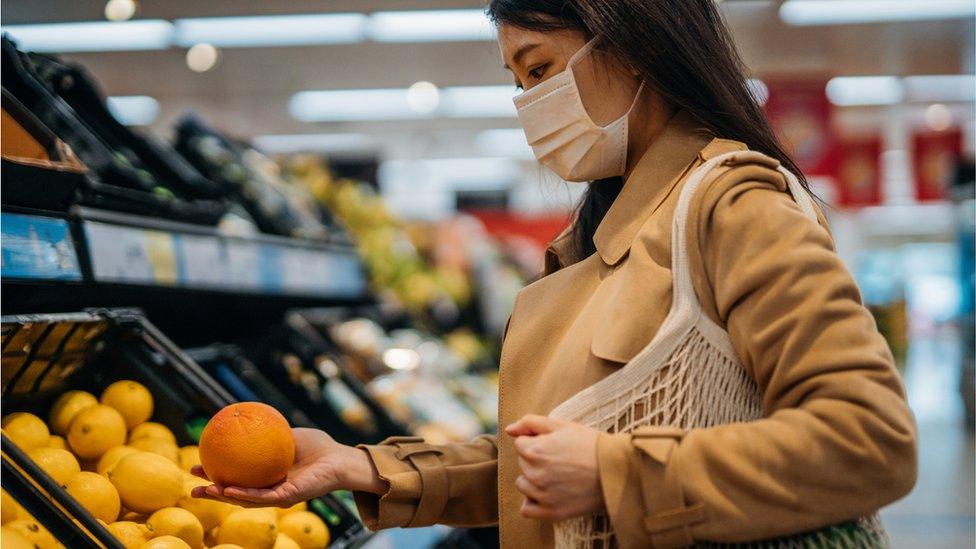I'm A Celebrity: Insects could feed the world's population
- Published
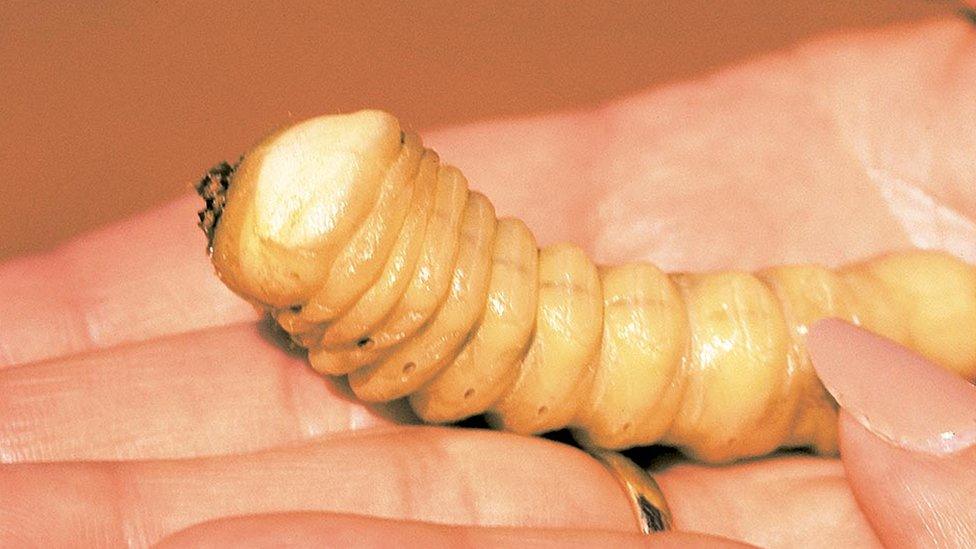
Insects such as this witchetty grub have been eaten on I'm A Celebrity - but those used on the show are no longer alive
When you hear about people eating insects, the chances are you think of the bushtucker trial on I'm a Celebrity, which starts this weekend.
But food ingredients made from insects could be coming to a menu near you.
This is the focus of research being carried out at Aberystwyth University.
Scientists at the Institute of Biological, Environmental and Rural Sciences (IBERS) are looking at insects as a potentially valuable source of animal feed and food for people.
The work is part of ValuSect - which stands for valuable insects - an international project aiming to improve the sustainable production and processing of insect-based products.
Insects are a common feature of people's everyday diets in countries including Mexico, China and Ghana.
They offer a more environmentally-friendly source of protein than many other foods and could help feed the world's growing population.
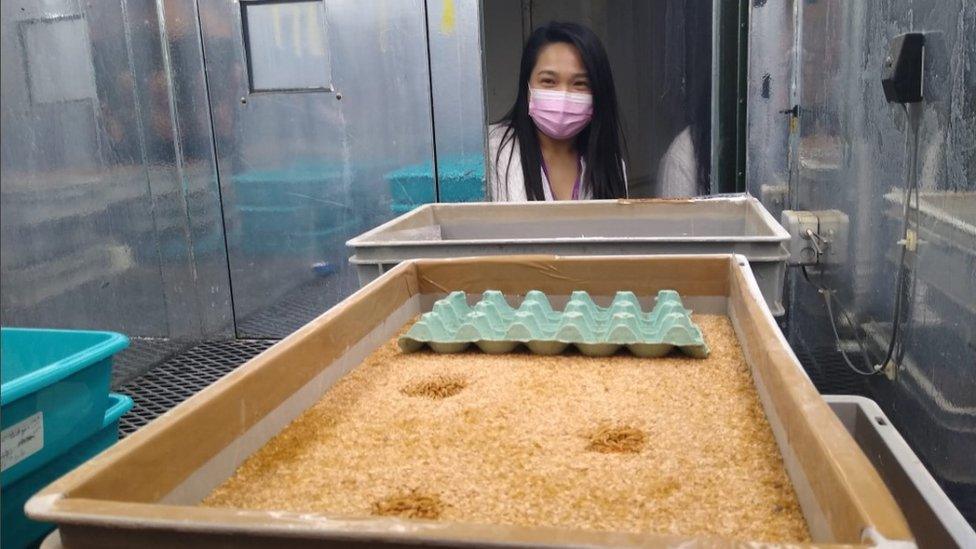
The research has implications for what we will have on our dinner plates in future
Chatting over a tray of 20,000 live mealworms, Dr Tiffany Lau, a postdoctoral research associate at IBERS, said insect ingredients could form part of a range of foods.
"They could be made into protein shakes, protein smoothies, they could be insect burgers, falafels, muffins anything you could think of really," she said.
"I would eat them - maybe not when they're looking like this though.
"They would be dried and ground into powder before you make them into food anyway, so you wouldn't look at it like worms hanging out of your burger, it would be made into a sort of patty."

Eating insects is just one task facing those taking part in I'm A Celebrity this year
The scientists at Aberystwyth are studying the nutritional value of processed insects, which Prof Alison Kingston-Smith said could be an important source of sustainable protein.
"They're full of protein and polyunsaturated fatty acids which is really good for us," she said.
"What we want to do is understand how we can feed the insects to make them the best quality they can be to deliver the nutritional quality that we need for feed and food.
"The most usual incorporation is into something like an energy bar."
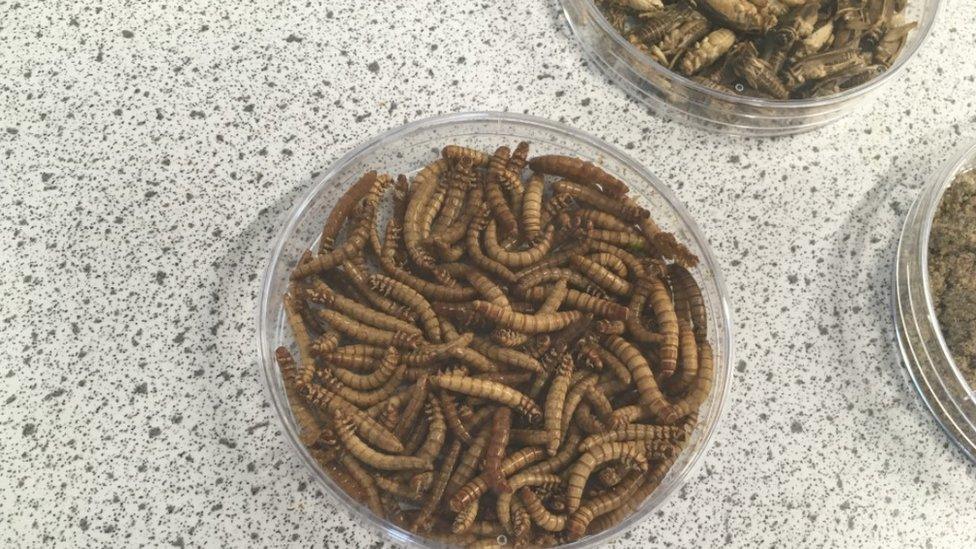
Could mealworms one day be a meal in their own right?
ValuSect, a consortium of partners coordinated by Thomas More University in Belgium, has been studying crickets, grasshoppers and yellow mealworms as human food.
A new grant will see the black soldier fly added to the research menu and extend the work to look at using insect products in animal feed.
Findings will be shared with food and agriculture businesses across northern Europe.
Research indicates that approximately 30% of EU consumers are willing to eat insect-based food.
ValuSect aims to increase this number by improving the quality of insect production and processing, carrying out consumer tests, and reducing its environmental impact.
Some insect-based ingredients are already available and Prof Kingston-Smith believes the choice of insect food products is likely to increase in the coming years.
She added: "You wouldn't hide the fact that (food) contains insect protein - but I think it's the idea of eating an intact locust is less appealing than something that's in a product where that textural connotation is different.
"If we look at the way that food consumption has changed over the last few decades, we're far more accepting of different types of food, different flavours. We want to embrace all different cultures in our food tastes, and I think insects is just the next the next step in that.
"In another 20 years it will be commonplace to go and find your insects on the a la carte menu."
- Published15 November 2021
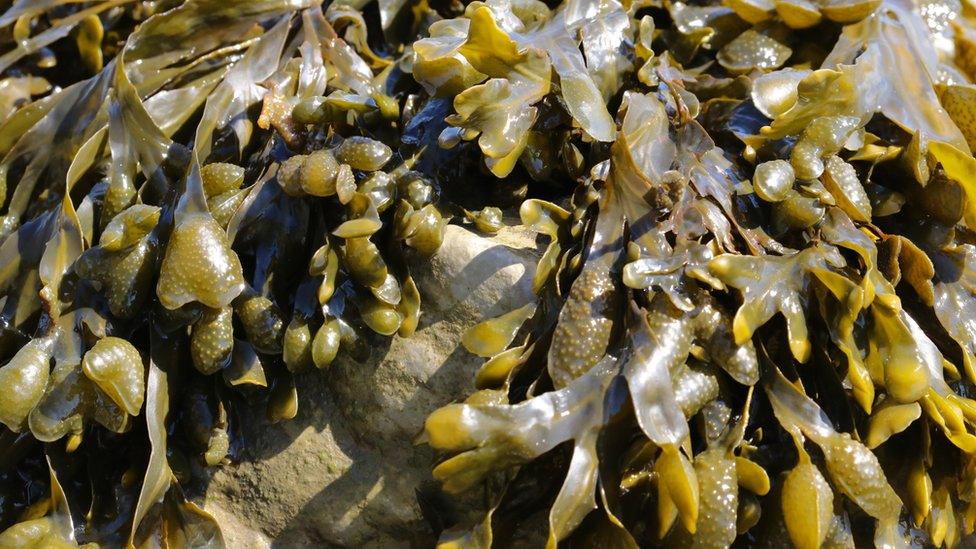
- Published28 October 2021
